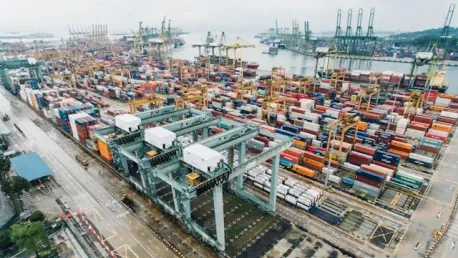Maersk, the global shipping giant, has recently revised its earnings forecast for the third consecutive time since May, predominantly due to increased freight rates driven by a crisis in the Red Sea region. The company, a bellwether in marine logistics and shipping services, has maintained an outlook of steady global container demand for the upcoming quarters. However, it has also highlighted substantial accompanying risks that could disrupt this relative stability. Despite the U.S. consumer market receiving some support from a healthy, if cooling, labor market, uncertainties loom as waning consumer confidence and declining savings threaten future demand.
The economic landscape in which Maersk operates remains fraught with unpredictability. While the shipping company’s cautious optimism underscores its proactive adjustment to forecasts, the complexities of global trade cannot be overlooked. Over the past months, increased freight rates have surged particularly due to disruptions in the Red Sea region, a critical artery for global shipping routes. Maersk’s report indicates that such regional crises have tangible, far-reaching impacts on global shipping rates, adding to the multifaceted risks faced by the industry.
Market Stability and Economic Risks
Maersk, the global shipping titan, recently revised its earnings forecast for the third time since May, mainly due to increased freight rates stemming from a crisis in the Red Sea region. As a leader in marine logistics and shipping services, Maersk has projected steady global container demand for the coming quarters but has also identified significant risks that may disrupt this stability. Although the U.S. consumer market benefits from a resilient, albeit cooling, labor market, declining consumer confidence and savings pose a threat to future demand.
The economic environment in which Maersk operates is marked by unpredictability. The company’s cautious optimism reflects its proactive stance in adjusting forecasts, yet the intricacies of global trade remain a significant challenge. Notably, increased freight rates have surged, particularly due to disruptions in the Red Sea, a vital corridor for global shipping. Maersk’s report emphasizes that regional crises can have widespread effects on global shipping rates, adding to the industry’s already multifaceted risks.









